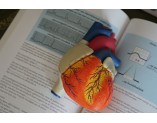Incontinence
For many people, the need to use the bathroom is something they can easily postpone. But for the more than 50 percent of older Americans that struggle with urinary incontinence, holding it in isn't an option.
What is Incontinence?
As we grow older our bodies begin to change and often uncomfortable and distressing problems arise. One problem that affects many elderly people is urinary incontinence. Urinary incontinence (UI) is a loss of bladder control. Symptoms can vary from slight leaking to uncontrolled wetting. It can happen to anybody, but it becomes more commonplace with age. Women suffer from UI twice as often as men.
Urinary incontinence itself isn't a disease; it's a symptom that can be caused by daily habits, an underlying medical condition or physical complications.
Most bladder control difficulties occur when muscles become too weak or are overactive. If the muscles that hold your bladder closed become weak, you may have accidents when you laugh, cough or lift a heavy object. This is known as stress incontinence.
If bladder muscles become overactive, you may feel a strong impulse to go to the bathroom when you have scarcely any urine in your bladder. This is known as urge incontinence or an overactive bladder. There are other reasons for incontinence, such as prostate complications diabetes and medication.
Types of Incontinence
There are several different types of incontinence and each type can affect people differently. It is important to see your doctor to diagnose which type of urinary incontinence you may have and the appropriate treatment options. The following are different types of incontinence.
Stress Incontinence
Stress incontinence is the most common form of urinary incontinence, and mostly affects women. Stress from coughing, laughing sneezing or lifting heavy objects puts additional pressure on the bladder, causing urine to leak. This type of incontinence is typically caused by weakness in the pelvic muscles caused by giving birth, menopause or surgery. Men can also experience stress incontinence as a result of prostate cancer surgery.
Urge Urinary Incontinence
Urge incontinence occurs when you have an intense, sudden need to urinate. This type of incontinence is also known as an overactive bladder and can happen frequently.
Urge incontinence can affect anyone at any age, but it seems to be more predominant in the elderly. It can be caused by a urinary tract infection or by a nerve disorder like Alzheimer’s disease, multiple sclerosis or diabetes.
Overflow Urinary Incontinence
Overflow incontinence is the reverse of urge incontinence. Even though the need to urinate isn’t felt, the bladder is too full and begins to uncontrollably leak small amounts of urine to relieve pressure.
Overflow incontinence often occurs in men. It can be caused by an enlarged prostate obstructing the flow of urine or a tumor. Nerve damage, weak bladder muscles and medications can also cause overflow incontinence.
Bowel Incontinence
Bowel incontinence is the inability to contain or "hold" a bowel movement. It can be caused by constipation that goes on for an extended period of time or diarrhea.
Functional Urinary Incontinence
Functional incontinence occurs when a person is aware of the need to urinate, but for one or more physical or mental reasons they are unable to get to a bathroom.
Causes of Urinary Incontinence
There are many causes linked to incontinence and can range from something as simple as pregnancy to more severe conditions like an enlarged prostate. There are also several diseases that can cause incontinence, such as diabetes and Alzheimer's disease. The following are several causes that may contribute to urinary incontinence.
Temporary Urinary Incontinence
Specific food, beverages and medications can act as a diuretic which stimulates the bladder and increases the amount of urine. They are:
- Alcohol, caffeine, decaffeinated tea and coffee and carbonated drinks
- Artificial sweeteners, corn syrup and foods that have a lot of spices, sugar or acid
- Blood pressure medication, muscle relaxers, sedatives and heart medication
- Large amounts of vitamins B or C
- Urinary tract infection and constipation
Persistent Urinary Incontinence
Urinary incontinence can also occur if there is an underlying physical condition or recent changes in the body. They are:
- Pregnancy and childbirth
- Changes in age
- Menopause or hysterectomy
- An enlarged prostate, prostate cancer or an obstruction
- Neurological disorders
Urinary Tract Infections and UI
Elderly people are prone to urinary tract infections (UTI) as they are more susceptible to infections due to the suppressed immune system that comes with age and certain age-related conditions. The following are possible reasons for an elderly person’s inability to completely drain their bladder.
- Impaired immunity
- Prostate problems
- Bladder prolapse or cystocele
- Medications (antihistamines, tricyclic antidepressants).
- Bladder or bowel incontinence
- Catheters
Tips for Managing Incontinence
For most people, going to the bathroom is part of their everyday routine, something scarcely even noticed. But for an elderly person, suffering from incontinence can become an embarrassing and problematic event. The following are some helpful tips:
- Make sure the person knows where the bathroom is
- Make sure that the path to the toilet is clear of furniture, toys, etc.
- Leave the bathroom door open when it is not in use
- Make sure the toilet is easy to use and if needed, install handrails.
- Make sure the person’s clothing can be easily removed in case of an accident
- If reaching the toilet becomes impossible, try a portable toilet or incontinence aids
Unfortunately, incontinence is not always treatable in the elderly and you may need to seek outside help for toileting and incontinence care, such as an in-home caregiver or long term care facility such as assisted living or residential care home.









